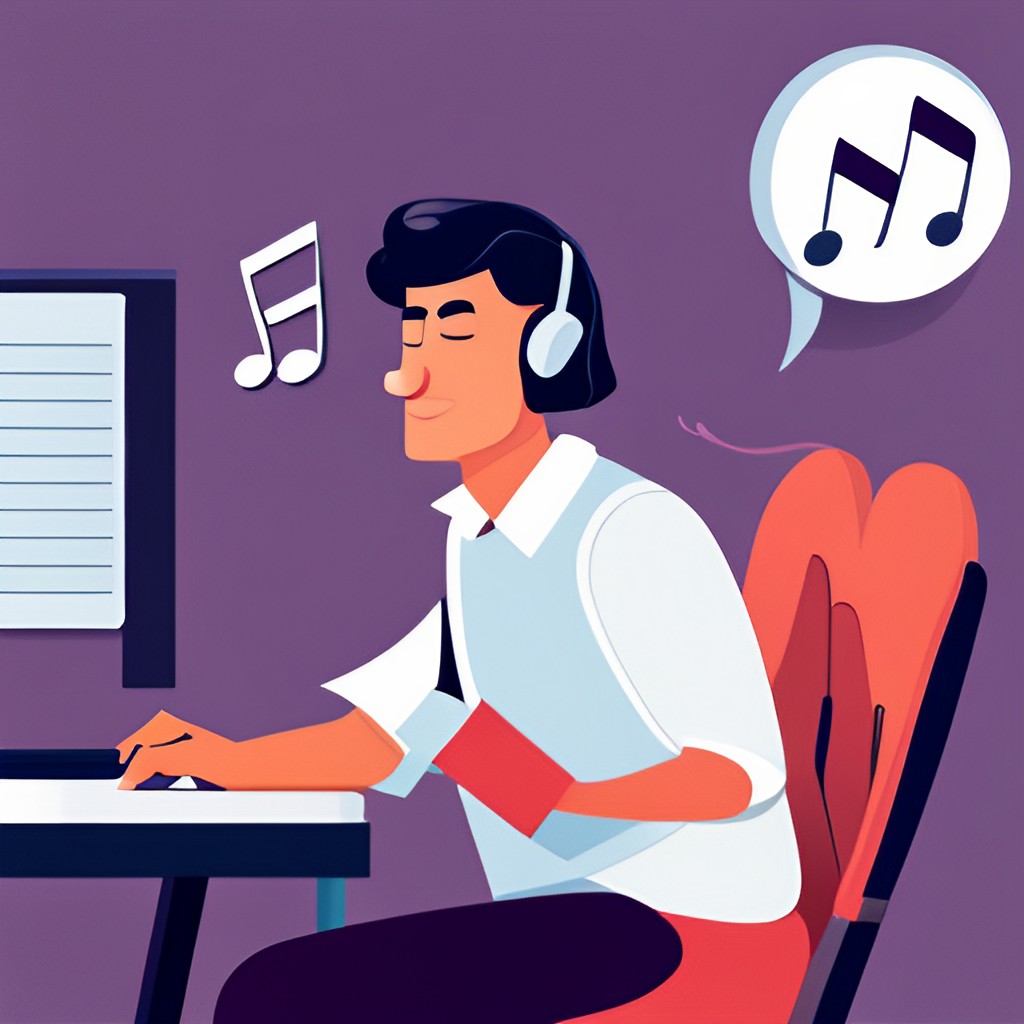
Music’s enchanting capability to touch our souls, evoke emotions, and trigger vivid memories is unparalleled. Beyond its power to transport us to moments long forgotten or elevate our spirits, music plays a pivotal role in memory enhancement and learning. This article delves into the intricate relationship between music and memory, uncovering the science behind it and offering practical strategies for using music to boost memory. Whether you’re a student aiming to refine your study habits or simply curious about the cognitive benefits of listening to music, you’ll discover how melodies serve as a potent tool for memory aid.
The Science of Music for Better Recall
To grasp how music and memory enhancement are interconnected, it’s crucial to explore the underlying science. Our brains, remarkable for their ability to process and store vast information, show a special affinity for music, making it a powerful agent for improving memory with music.
Emotion and Memory
A key aspect of music’s memorability is its capacity to evoke emotions. Experiencing music that resonates with us often elicits strong emotional responses, thanks to the release of neurotransmitters like dopamine. These emotional triggers are instrumental in the encoding and consolidation of memories, highlighting the impact of music on learning and memory.
Rhythm and Recall
Music’s rhythmic patterns serve as cognitive aids. Our brains excel at recognizing and synchronizing with rhythms, a synchronization that aids memory recall. Catchy jingles or childhood songs, effortlessly recited, owe much of their memorability to their rhythmic structure, showcasing the cognitive benefits of listening to music.
Neural Networks
Engaging with music activates a network of brain regions, including the auditory cortex, limbic system (associated with emotions), and the prefrontal cortex (responsible for higher-level cognitive functions). This orchestrated brain activity strengthens memory formation and retrieval, underscoring music as a tool for memory aid.
Associative Memory
Music’s ability to become associated with specific events or periods in our lives creates “context-dependent memory.” Hearing a song from a particular time can trigger memories and emotions from that period, enhancing recall with musical mnemonics.

Practical Strategies for Using Music to Aid Recall
Understanding the science paves the way for practical strategies in harnessing music for cognitive enhancement. Here’s how music can be integrated into learning and memory-enhancement routines:
Choose the Right Music
Selecting the appropriate music is crucial for memory improvement techniques with melodies. Here are tips for picking tunes that aid memory:
- Instrumental Music: Lyrics can distract when focusing on studying or memorizing. Instrumental tracks or classical pieces are often more conducive to concentration.
- Familiarity: Known music may be less distracting than unfamiliar tunes, as your brain isn’t as likely to fixate on the lyrics or melodies.
- The Mozart Effect: Although debated, many find classical music, especially Mozart’s compositions, beneficial for focus and memory.
- Personal Preferences: The most effective music for enhancing memory is what personally resonates with you. Experiment with various genres to find what best aids your concentration and recall.
Create Playlists for Specific Tasks
Tailoring playlists to the nature of the task can further optimize music’s effectiveness for memory recall:
- Energetic Tunes for Motivation: Fast-paced music can boost energy for workouts or challenging projects.
- Calm Melodies for Relaxation: Soft, soothing tracks are ideal for relaxation or meditation periods.
- Instrumental for Focus: Select instrumental pieces for tasks requiring deep concentration, such as studying or problem-solving.
Incorporating music into your learning process not only enhances memory retention but also makes the journey more enjoyable and effective. By understanding the science behind music and memory and applying these musical strategies for memory recall, you can unlock the full potential of melodies in your cognitive enhancement and memory improvement journey.
Use Music as a Memory Aid
Leveraging music as a mnemonic device is a highly effective strategy for enhancing recall with musical mnemonics. Music can transform the way we store and retrieve information, making it an invaluable tool for memory enhancement.
- Lyrics and Mnemonics: Converting information into song lyrics with a catchy melody can be particularly useful for memorizing lists, definitions, or sequences. This creative approach taps into the natural rhythm and recall abilities of our brains, illustrating the impact of music on learning and memory.
- Soundtracks for Study Material: Assigning specific pieces of music to different study topics can create a strong associative memory link. When you hear a particular piece, it can trigger recall of the associated material, a method that underscores the cognitive benefits of listening to music.
- Memory Palace Soundtracks: Integrating music into the Memory Palace technique can reinforce memory retrieval. Different melodies assigned to specific locations within your mental palace can act as cues, enhancing the effectiveness of this mnemonic strategy.

Create Musical Mnemonics
Musical mnemonics are not just a fun way to remember information; they’re a powerful memory improvement technique with melodies. They can simplify complex information into memorable snippets of music.
- Acronyms and Songs: Using acronyms or creating songs to remember sequences, such as mathematical operations, leverages music’s natural mnemonic power. This approach is a testament to using music to boost memory and facilitate learning.
- Rhymes and Jingles: Crafting rhymes or jingles for key facts enhances memory recall, making it easier to remember language vocabulary, historical dates, or scientific principles.
Leverage the “Spacing Effect”
The spacing effect, a proven method for memory retention, involves reviewing material at increasing intervals. Music can play a crucial role in this process:
- Playlist Revision: Creating a playlist related to the study material and revisiting it over spaced intervals can reinforce memory. This technique, combining the spacing effect with melodies, is a strategic way of improving memory with music.
- Reinforcement Through Repetition: Listening to the same music at different study sessions helps reinforce the material, making it an effective strategy for memory and learning enhancement.
Use Music as a Timer
Music can also serve as a practical tool for managing study or work sessions effectively, employing the Pomodoro Technique with a musical twist:
- Music Timers: Selecting playlists that correspond with the desired study duration can help you maintain focus. Once the music stops, it signals a time for a break, integrating music into time management strategies for studying.
- Productivity and Focus: Using music as a timer not only aids in keeping track of study sessions but also enhances focus and productivity, illustrating the multifaceted benefits of music for cognitive enhancement.
Real-Life Applications and Benefits
The practical applications of music for memory enhancement extend far beyond academic settings:
- Language Learning: Listening to music in a target language can reinforce vocabulary and pronunciation, demonstrating music’s role in improving memory with music.
- Exam Preparation: Creating a conducive study environment with music can reduce anxiety and improve retention, highlighting the science of music for better recall.
- Creativity and Problem Solving: Background music can stimulate creative thinking, aiding in brainstorming and problem-solving.
- Physical Activities: Music enhances performance in activities requiring rhythm and coordination, such as sports or dance.
- Emotional Well-Being: The therapeutic effects of music contribute to improved mood and stress reduction, further showcasing the cognitive benefits of listening to music.
- Memory Preservation: For individuals with neurological conditions, music serves as a valuable tool for preserving memory and cognitive function.
Conclusion: Improving Memory with Music
The relationship between music and memory showcases the incredible capabilities of our brains. By applying practical strategies such as choosing the right music, creating playlists for specific tasks, using music as a memory aid, and leveraging musical mnemonics, you can enhance your memory and learning journey. Music is not only a source of enjoyment but also a powerful tool for cognitive enhancement, making it an essential element for anyone looking to boost their memory and achieve greater academic, professional, and personal success.

